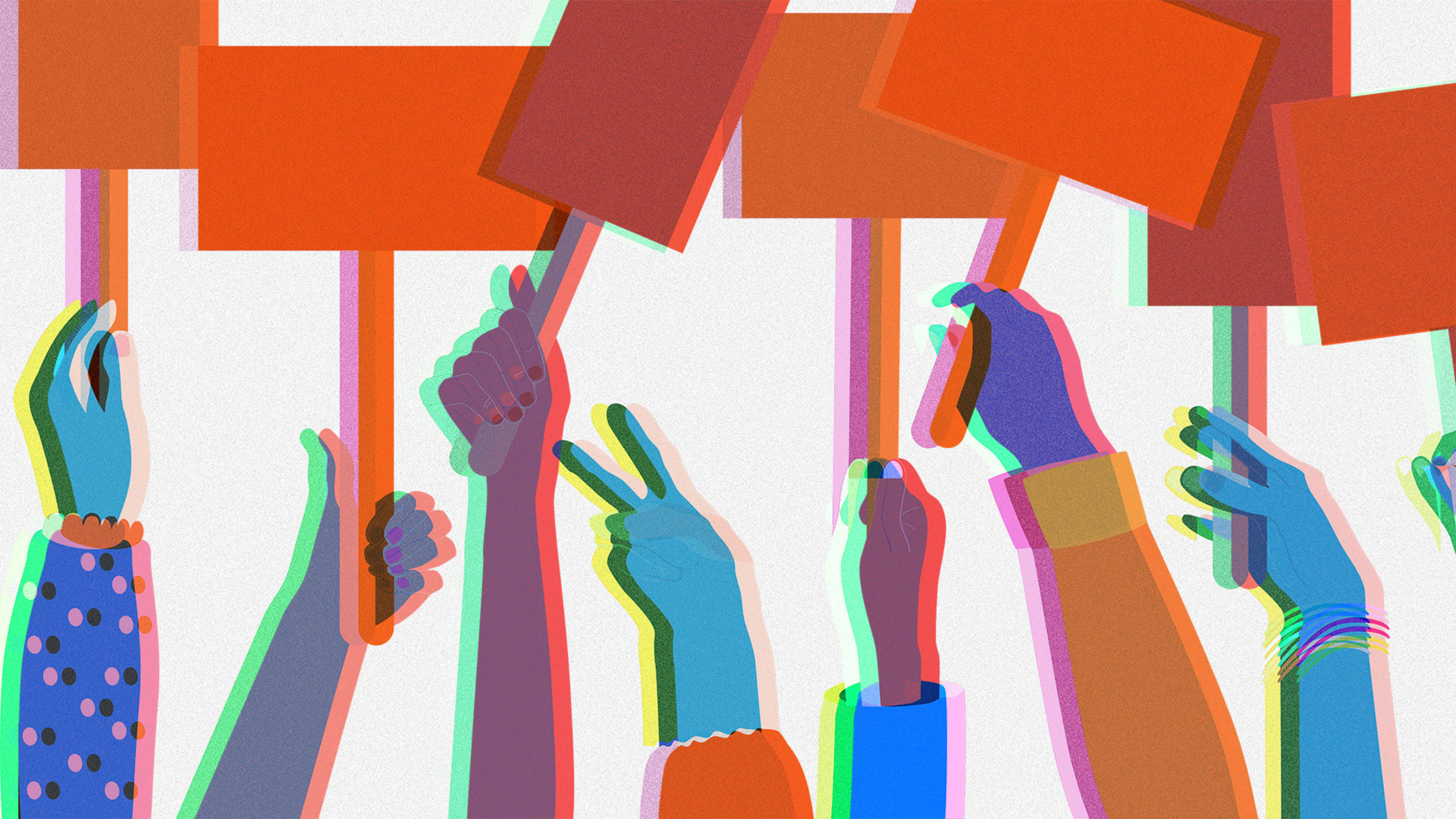The concept of compassion fatigue is most often associated with professions like social work or medicine, where those on the front lines are faced with tragedy and pressure to prioritize the needs of others. It tends to accelerate after periods of intensive emotional stress, such as a pandemic, which may be why employees across industries report they’re feeling less empathy. Experts now suggest that a similar wave of “diversity fatigue” may be on the horizon.
Diversity fatigue describes the feelings of exhaustion, isolation—and sometimes, skepticism—associated with a desire to understand and solve the complex issues surrounding racial justice. Ironically, this may be most challenging for the diversity, equity, and inclusion professionals on the front lines of corporate efforts to implement anti-racist strategies.
In the wake of last summer’s long-overdue reckoning on race, technology companies across the country made sweeping promises to improve the diversity makeup of their workforces. Nearly one year later, many worry whether that initial, intense dedication will remain sustainable. Even if one assumes the best intentions, that fear is not unfounded.
Admittedly, this work is hard. To prevent the onset of diversity fatigue and keep pushing for racial justice, here are three strategies for culture and talent in 2021.
Normalize the sharing of social capital
From internships to networking, social capital is an essential ingredient in finding a good job and advancing your career. More students from minority backgrounds are going to college than ever before, but they remain shut out from many of the important ancillary aspects of career development. With as much as 70% of jobs never being posted online, networking within the professional world is vital, a fact that leaves minority graduates and workers at a disadvantage compared to their more privileged peers.
African Americans with college degrees are twice as likely to be unemployed as other graduates, and Black graduates who do manage to land a good job are then frequently passed over for promotions. While the biases of those hiring and promoting workers play a large role in this phenomenon, so do the ways many workers struggle to accrue social capital. Even when Black employees attend the kinds of networking activities that provide visibility and access, they often find it difficult to engage in small talk and converse with colleagues and managers about their lives. About 60% of Black women say they have never had an informal interaction with a senior leader at their company.
Companies should encourage a mentorship culture, with a particular focus on volunteer programs that support underrepresented minority communities. These programs should be designed to easily fit into workers’ busy lives. Think bite-size coaching sessions and short but regular catch-ups. All employees should be able to share and benefit from the social capital being built throughout a workplace.
Double down on tech training
We must act now to ensure underrepresented workers are prepared for the jobs of tomorrow—and those jobs overwhelmingly require computing skills. According to the National Center for Education Statistics, computing jobs are among the highest paying for new college graduates, but Black and brown students have been notoriously boxed out of computing programs and the kinds of internships that lead to high-paying, in-demand careers in tech.
With the estimated 97 million new job categories that could arise from automation, companies estimate that 40% of workers will require reskilling. If a company aims to build the sort of environment where minorities can thrive and secure more economic mobility, it must have a plan to reskill employees into tech positions. Companies must double down on digital education options, offering employees responsive and accessible programs that can easily fit into their busy lives.
Establish a bold, long-term vision
Many diversity initiatives are either too nebulous or at risk of turning into a series of simple boxes to check. Even solid, well-informed goals in place are often too limited in scope—confined to quarter-to-quarter solutions, focused inwardly, and not sufficiently bold. Long-term thinking is critical in crafting a diversity strategy that not only aims to accomplish something concrete but to do so with specific, impactful outcomes in mind to drive sustainable change.
An organization’s leadership must create a compelling, multiyear vision and identify clear, measurable milestones. This plan must incorporate buy-in from employees at every level, with incentives being aligned across the company. Companies should publicly announce their vision alongside transparent workforce data, which adds extra incentive to see the plan through. Managers should be rewarded for both their successes and experimentation in trying to accomplish the clear goals set by leadership. Even fatigued managers will often find ways to get creative if there is a bonus on the line.
One important outcome many companies should focus on is diversifying the C-suite. Currently, about 70% of executives are white men. Companies must set specific goals around diversity in hiring or promotion for these roles, as well as provide historically disenfranchised workers with the opportunities and resources they need for advancement.
There is no quick fix to closing the racial equity gap. But we cannot afford to let exhaustion creep in and derail the renewed urgency around diversity and inclusion efforts. Building a plan around concrete steps like these can help chart a path forward—one imbued with enough momentum to keep diversity fatigue at bay while creating a more just world of work.
Michael Ellison is the founder and CEO of CodePath.
Kristen Titus is the executive director of Cognizant U.S. Foundation and was the former chief technology and innovation officer of New York and the founding executive director of Girls Who Code.
Recognize your brand’s excellence by applying to this year’s Brands That Matter Awards before the early-rate deadline, May 3.
